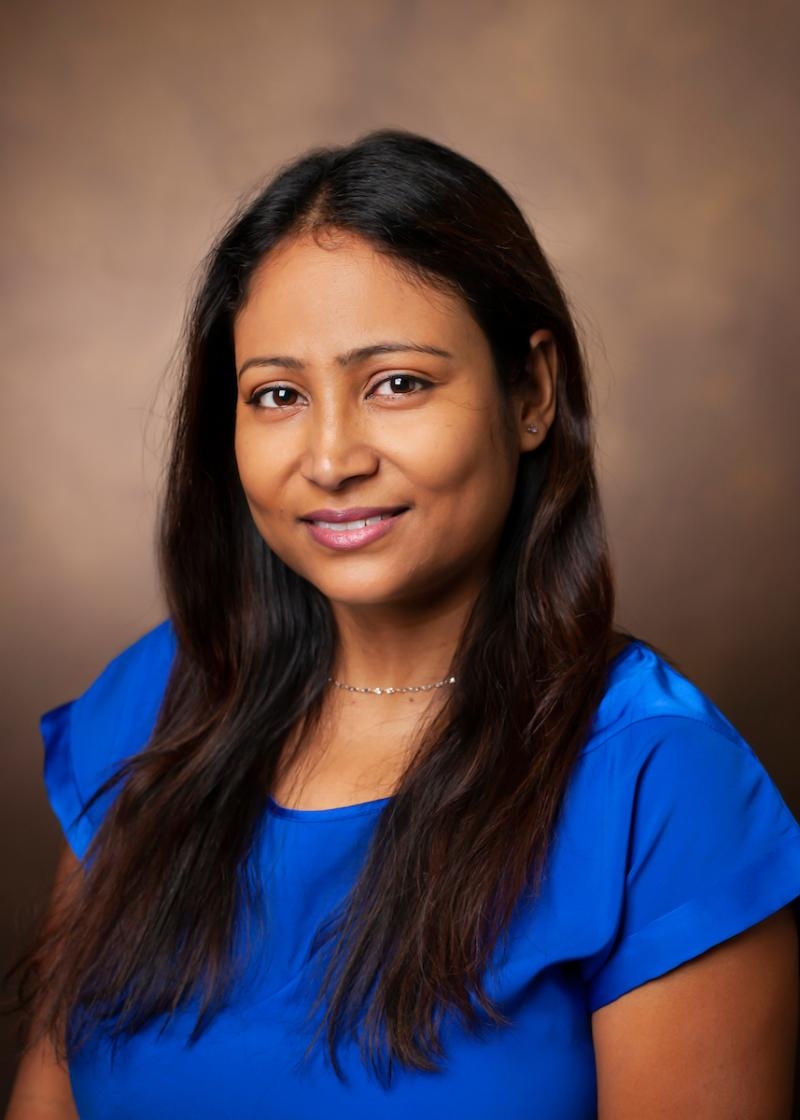Title and Department
Assistant Professor of Medicine
Clinical Pharmacology
Professional bio
Swati Dey, PhD, is an Assistant Professor of Medicine in the Division of Clinical Pharmacology within the Department of Medicine at Vanderbilt University Medical Center. Before earning her PhD from The Ohio State University and completing a fellowship at Johns Hopkins University, she studied Zoology.
Dr. Dey’s ongoing research is aimed at dissecting the mechanisms by which chronic elevations in sympathetic activity induce mROS-mediated adverse remodeling in the heart, leading to heart failure (HF) and increased risk of sudden cardiac death (SCD). Her research program focuses on the design of potential new in vivo therapies for HF and SCD by reducing sympathetic stress-mediated adverse remodeling in the heart (e.g., using gene therapy to convert sympathetic nerves to parasympathetic nerves, device-based stimulation of sympathetic nerves).
Sudden cardiac death claims more lives each year than all other causes of death combined. The underlying mechanisms remain unclear, precluding the design of new, more effective therapies. Progress in understanding SCD mechanisms has been limited by the lack of a suitable animal model resembling the human phenotype. While reactive oxygen species (ROS) have been strongly implicated in the pathogenesis of both SCD and heart failure (HF), insight into the mechanistic role has been limited by the lack of sophisticated tools. Dr. Dey’s work reveals important new mechanistic and therapeutic insights with potential for broad clinical translation. Her studies have demonstrated that antioxidant flux depends on mitochondrial substrate catabolism with the availability of NADPH as a major rate controlling step. Further, she developed several unique and highly clinically-relevant animal models, including the first female model of non-ischemic HF with spontaneous SCD. Additional studies by Dr. Dey have revealed that mitochondrial ROS (mROS) is the principal driver for SCD. Importantly, she also demonstrated that scavenging mROS in vivo mitigates SCD and reverses HF.
Dr. Dey’s goal is to form strong, long-term collaborations to employ a multidisciplinary translational approach to address questions of clinical significance related to heart failure and sudden cardiac death.
Dr. Dey’s ongoing research is aimed at dissecting the mechanisms by which chronic elevations in sympathetic activity induce mROS-mediated adverse remodeling in the heart, leading to heart failure (HF) and increased risk of sudden cardiac death (SCD). Her research program focuses on the design of potential new in vivo therapies for HF and SCD by reducing sympathetic stress-mediated adverse remodeling in the heart (e.g., using gene therapy to convert sympathetic nerves to parasympathetic nerves, device-based stimulation of sympathetic nerves).
Sudden cardiac death claims more lives each year than all other causes of death combined. The underlying mechanisms remain unclear, precluding the design of new, more effective therapies. Progress in understanding SCD mechanisms has been limited by the lack of a suitable animal model resembling the human phenotype. While reactive oxygen species (ROS) have been strongly implicated in the pathogenesis of both SCD and heart failure (HF), insight into the mechanistic role has been limited by the lack of sophisticated tools. Dr. Dey’s work reveals important new mechanistic and therapeutic insights with potential for broad clinical translation. Her studies have demonstrated that antioxidant flux depends on mitochondrial substrate catabolism with the availability of NADPH as a major rate controlling step. Further, she developed several unique and highly clinically-relevant animal models, including the first female model of non-ischemic HF with spontaneous SCD. Additional studies by Dr. Dey have revealed that mitochondrial ROS (mROS) is the principal driver for SCD. Importantly, she also demonstrated that scavenging mROS in vivo mitigates SCD and reverses HF.
Dr. Dey’s goal is to form strong, long-term collaborations to employ a multidisciplinary translational approach to address questions of clinical significance related to heart failure and sudden cardiac death.
